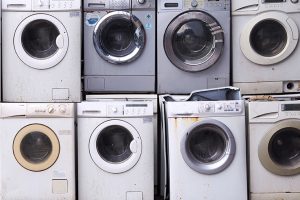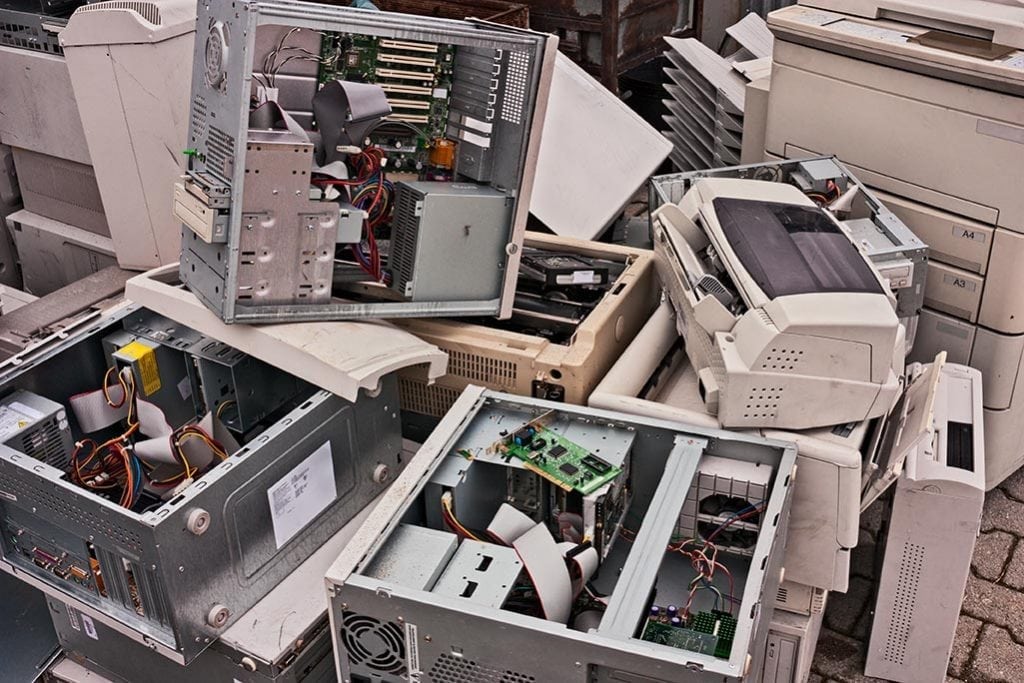
 Colin Staub was a reporter and associate editor at Resource Recycling until August 2025.
Colin Staub was a reporter and associate editor at Resource Recycling until August 2025. A complete ban on scrap plastic imports into India will be delayed until the end of August, giving the global plastics recycling industry some time to adapt.
A complete ban on scrap plastic imports into India will be delayed until the end of August, giving the global plastics recycling industry some time to adapt.
 A handful of electronics processors have recently opened facilities or expanded existing plants. Here’s a roundup of recent facility activity.
A handful of electronics processors have recently opened facilities or expanded existing plants. Here’s a roundup of recent facility activity.

The recycling rate for electronics and electrical appliances increased in the European Union in 2016, new figures show.
 This story has been updated.
This story has been updated.
The Indian government says it will ban scrap plastic imports, a move that threatens to further disrupt the U.S. recycling industry by closing a growing market.
 A Kansas nonprofit e-scrap operator has closed its doors, citing dwindling device collections.
A Kansas nonprofit e-scrap operator has closed its doors, citing dwindling device collections.
 Machinery at the shuttered BlueOak Arkansas e-scrap smelting plant is being auctioned off late this month.
Machinery at the shuttered BlueOak Arkansas e-scrap smelting plant is being auctioned off late this month.
 Liquid Technology managed the assets of defunct health tech company Theranos, which shuttered last year after a high-profile fraud case and other legal troubles.
Liquid Technology managed the assets of defunct health tech company Theranos, which shuttered last year after a high-profile fraud case and other legal troubles.
 Oregon regulators announced they’ve settled a case against e-scrap processor Total Reclaim, centered on the company misleading customers about how devices were being handled. The company had previously acknowledged the settlement.
Oregon regulators announced they’ve settled a case against e-scrap processor Total Reclaim, centered on the company misleading customers about how devices were being handled. The company had previously acknowledged the settlement.
 A major e-scrap facility in Oman is nearing completion, bringing electronics processing to a country that has traditionally landfilled or exported material.
A major e-scrap facility in Oman is nearing completion, bringing electronics processing to a country that has traditionally landfilled or exported material.
